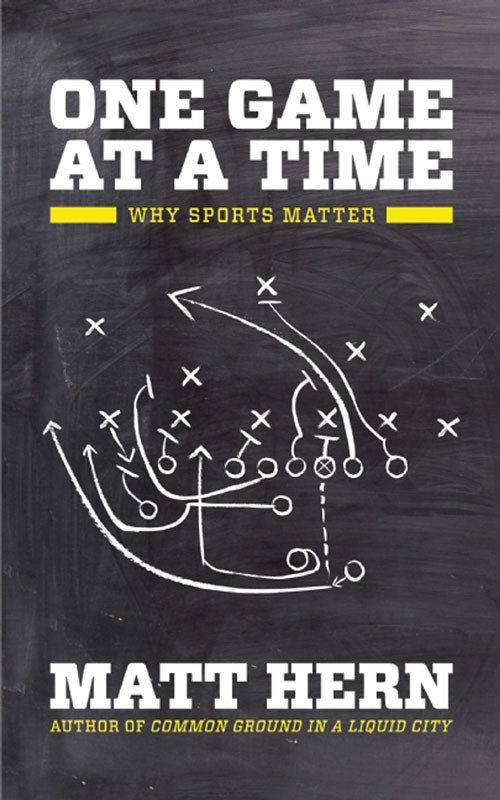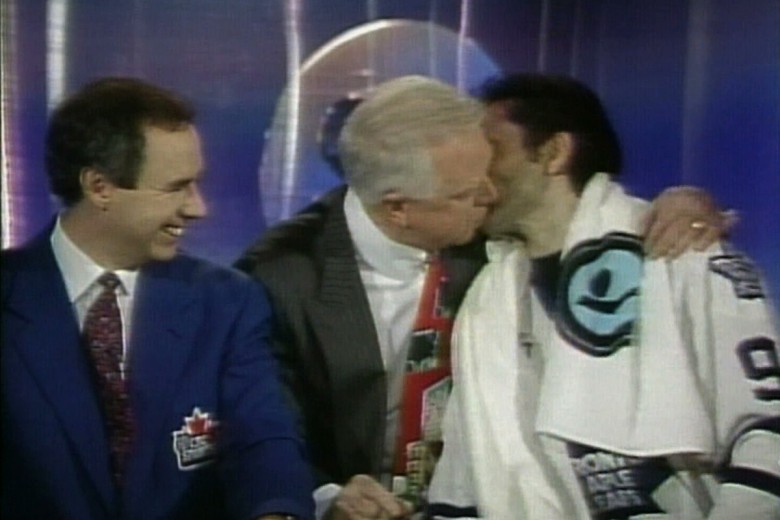
Whether you’re captain of your housing co-op’s soccer, volleyball, and baseball teams, or you’re a closeted but devout mixed martial arts fan, or you feel panic at the mere sight of a high school football field, Matt Hern wants you to care about sports. In his new book, One Game at a Time: Why Sports Matter, the Vancouver-based writer and community organizer insists that “sports offers us an arena where we can resist neoliberal logics and bodily encounter liberatory ideals.”
The book is fast-paced, confrontational, and even crass. In under 200 pages, Hern undercuts the political left’s disdain for the sporting world and challenges it to instead embrace the potential for solidarity and mutual aid in sports. Hern explores some of the stickiest aspects of sports, such as sexism, racism, homophobia, nationalism, and hyper-corporatization, but he also attempts to reveal how these issues – the basis of many progressive critiques of sports – can be addressed and even combated by the relationships built among teammates, coaches, clubs, and fans.
Hern is especially convincing on the trust relationships that come from playing sports – be it in your teammate’s warning of someone about to cross-check you into the boards or in your opponent’s commitment to punching only below the head and above the belt. Hern uses contact sports as an effective illustration of the importance of distinguishing between coercive violence and consensual bodily collisions. He argues that sports provide us with an opportunity to consider how we might build trust and structures of mutual aid with those around us, whether they’re a neighbour, co-worker, family member, lover, or a stranger on the bus.
While Hern is idealistic, he nevertheless addresses the destructiveness of sports head-on. His opening chapter spends two pages describing the capitalist shit show that is a night out at a Vancouver Canucks game. He condemns the athletic world for unabashedly policing gender and sexuality, from grade-school gym class up to the pro leagues and the Olympics. In a later chapter, he denounces the rampant racism still faced by so many amateur and professional athletes despite the massive gains made against racial segregation and stereotyping in sports.
But rather than responding to the messiness of the mainstream sporting world with derision or outright dismissal, Hern argues it is vital for leftists to “take sports seriously, as worthy of real respect, because if we don’t, we will continue to allow them to be dominated by some of the most regrettable politics imaginable.” One Game at a Time offers a number of suggestions for reframing our relationship to sports.
Recognizing the need to protect, at least for now, an exclusive space for self-identified women to compete, Hern’s suggestion to eliminate men’s-only sports leagues offers a useful model for challenging patriarchy and gender essentialism in contexts beyond athletics.
The major shortcoming of the book is the lack of any significant treatment of disability – especially disappointing given its emphasis on social justice and embodiment. While Hern briefly discusses the topic as it overlaps with the racism faced by Richard “Bear” Peter, an Indigenous friend of his who plays elite-level wheelchair basketball, it warrants more thorough attention. Additionally, while Hern’s casual tone invites a broad readership, some of his vocabulary is alienating. Most disappointing is the ableism at work in the choice of insults scattered throughout the text, such as “crazy,” “psychotic,” and “developmentally delayed.”
Hern name-drops a lot throughout the book, paying homage to everyone from John Carlos and Tommie Smith to Caster Semenya. While he acknowledges that “politics is more than iconic events or star-struck moments,” he spends nearly half a chapter discussing Brian Burke’s efforts to have professional athletes denounce homophobia. The philanthropy of one rich, white NHL manager with a gay son may not seem radical, but the giant audience ready and willing to absorb his message is worth considering as we activists bang our heads against the wall wondering why the same 200 people turn up for every demonstration we organize.
Which brings us back to Hern’s main argument: the cross-cultural, cross-class, intergenerational, and international appeal of sports makes it a sphere of life far too important and too powerful to be relinquished to the “hyper-consumptive, violent, militaristic, sexist, and homophobic politics” that currently have it in a stranglehold.




